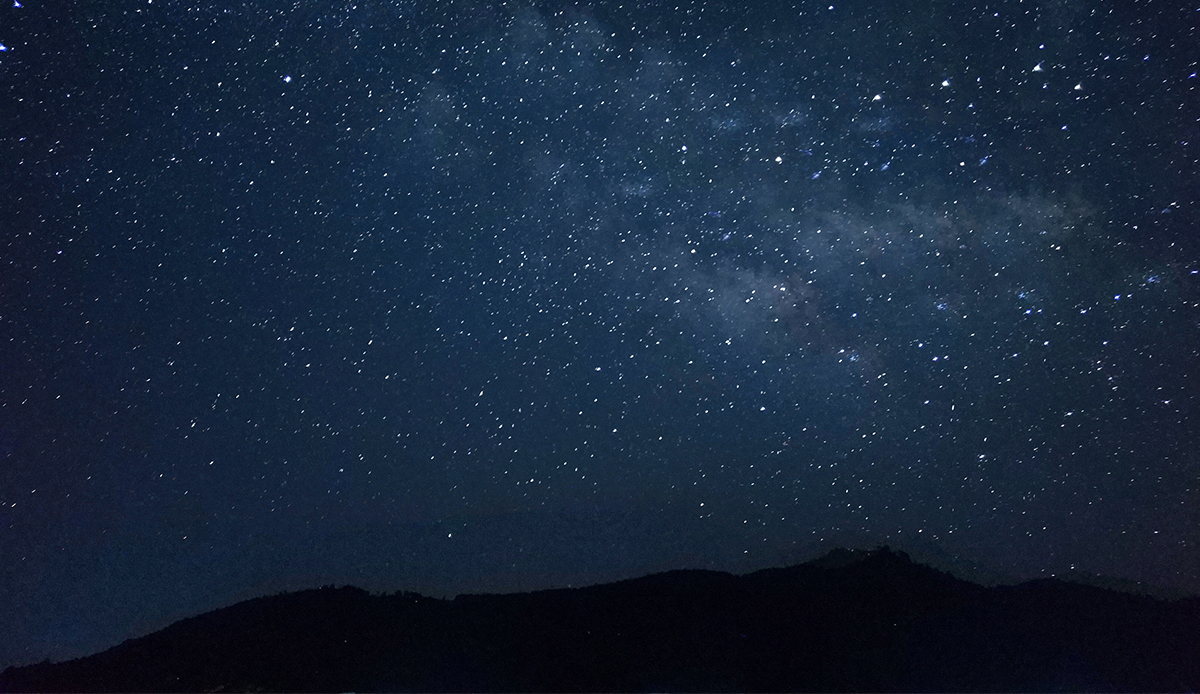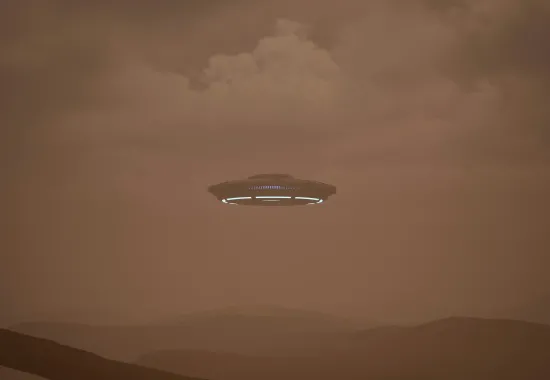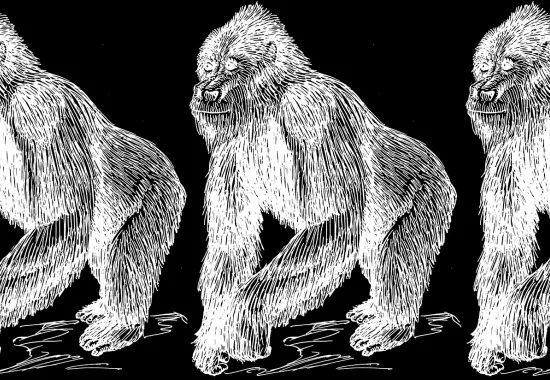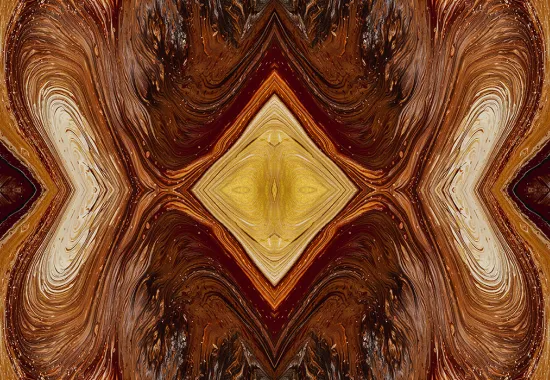My Own Lost Mexico
I THINK OFTEN ABOUT A PHOTOGRAPH my wife, Jennifer, took of me at the Franz Mayer Museum in Mexico City. I am twenty-eight years old, seated at a café table, pen in hand, my head turned toward my notebook in concentration, writing.
"This is how I love to think of you, as a writer," she said, and she had the photograph enlarged.
I could only think: Had I deceived her?
We were living in Mexico for the first time, and I had recently started writing chapters for a first book, a project which then seemed to me more imaginary than real. Jennifer said, "You are writing. See?"
But I did not deserve the title of "writer." I ha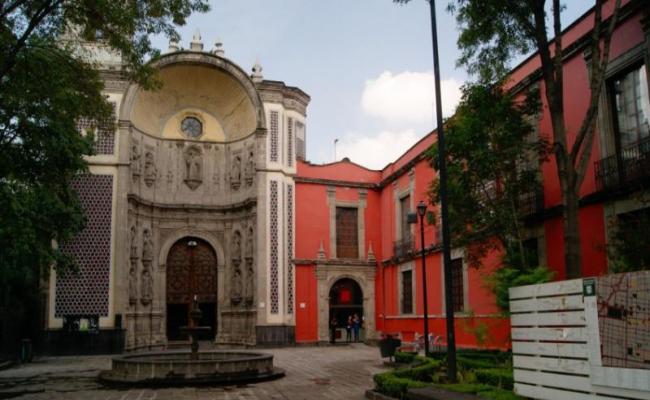 d excuses: I didn't have time. I needed to earn a living. I wasn't famous. My writing abilities were poor compared to those of the authors I admired. I lacked confidence and experience. I could only imagine myself as one kind of writer: one who had writer's block.
d excuses: I didn't have time. I needed to earn a living. I wasn't famous. My writing abilities were poor compared to those of the authors I admired. I lacked confidence and experience. I could only imagine myself as one kind of writer: one who had writer's block.
Before I ever went to Mexico, I happened upon a copy of James A. Michener's My Lost Mexico, a slim softcover. Michener had written dozens of thick books with one-word geographical titles, like Hawaii and Iberia and Texas, emblazoned on the covers in imposing fonts. But the inside jacket revealed the book to be a memoir about Michener's struggle to write the novel Mexico. Michener had abandoned the manuscript for thirty years, then came back to complete what became a bestseller. Flipping through the pages, I saw My Lost Mexico contained diagrams of his thoughts, letters to his publisher, and photographs of Mexico.
In our apartment in Mexico City: Our landlady, after workers had moved a bed into our second bedroom, which served as my study, says, "Now that the bed has been delivered, you can set up your desk and get to work."
But I needed time to plan what I knew was going to be a very complex website, the purpose of which was to help me make contacts for my career as a web developer.
"No," I said. "I am going to wait until after the holidays."
"You're becoming very Mexican."
MEXICO HAS A REPUTATION AMONG Americans as a place to go in order to not get things done. In Mexico, time happened slowly or not at all. Let me say, right away, I contest this.
Perhaps the most sophisticated interpretation of Mexico as a place to go in order to not get things done unfolds in Malcolm Lowry's 1946 novel, Under the Volcano. In the introduction of the Signet paperback edition, Stephen Spender describes the work as a novel of "action in inaction," a book about a man, Geoffrey Firmin, and his self-destruction and alienation as he drinks himself to death in 1930s Mexico.
In my own novel, the one I wrote, or didn't write, in Mexican cafés, a young man searches for his father, long lost to an illness of memory. He takes an opportunity to travel to Mexico, and wants to find it is a place to receive healing, a place to deal with the pain of losing a father. He needs it to stand for a place to recover stories, a place to remember and understand a family history, a place of making sense and meaning.
But in real life, my father never spent time in Mexico. He crossed the border once or twice, afraid they'd never let him back into the United States. Born and raised in a Tejano or Mexican-American family in Texas, he fled to the Northeast, breaking with his parents for twenty-five years.
"Write down what you're thinking," Jennifer said. "It would make an interesting project."
As far as I could tell, she had instantly diagnosed my condition and put forward the remedy: I needed to write a book about my actual life, my father, and myself.
But I wasn't sure.
I was blocked. My father broke with Mexico, broke with memory. My father never spoke about the past and spent his adult life trying to forget his. He broke with family traditions, obscured his own life story, and invented for himself a different, heroic past. He didn't like to talk about Texas, never mind Mexico.
According to one theory about marriage, people look for a partner who will compensate for their own shortcomings. Jennifer made quick connections between my ideas, articulating them in concise phrases. I spent a lot of time wavering and simmering over ambiguities and uncertainties, believing I was fully exploring the questions.
WHEN I MADE THAT FIRST GO AT writing a book about my father, in my first chapter, I imagined myself as a middle-aged man, returning to Mexico, looking over old notes and documents about a book I had failed to write when I was younger. I began by imagining I had hundreds of pages of documents and drafts and merely had to sort through them all, as if I had dumped a thousand-piece puzzle onto my desk.
But rather than acknowledge I was going to need to do some deep probing to move forward, I fabricated an elaborate distraction. I would write a book about creative failure in Mexico. Like me, the country, I believed, was also an abandoned son. It faced erasure and oblivion, left behind in a world that seemed to deny it meaning. Mexico, the home of my father's ancestral people, was left behind not only by him, but by me. I wanted to remember my father after his slip into Alzheimer's—and to discover the culture, place, and people he and I had been missing. I wanted my going to Mexico to be a kind of coming home.
True, when I visited Mexico for the first time, I saw in the streets, at social gatherings, everywhere, people who looked like my father, and like me. During the days, I tried to make business contacts. Also during the days, I wrote. Soon, I was spending more of my time writing than preparing for business. This abandoned country wouldn't let me absorb myself in a world of private entrepreneurship so easily. Mexico asked an unavoidable question: What about this pivotal crisis in your life do you keep trying to forget?
"MEXICO," LOWRY IS REPORTED TO HAVE written to a friend, "is the most Christ-awful place in the world in which to be in any form of distress." Nevertheless, a triumph of Under the Volcano is its richness of images from Mexico: Aztec gods and goddesses, the Mayan calendar and astronomy, and distinctive flora and fauna—coppery-tailed trogons, cacti, and yucca. Mexico is a garden in which Geoffrey Firmin indeed is facing distress: isolation, loneliness, and pain as he refuses to love or be loved. Firmin needs to drink because alcohol makes demands on his body; living in Mexico in particular seems to allow him to transcend his personal pain.
As much time as his protagonist Firmin spends worrying about where he will he will get his next drink, Under the Volcano isn't really about drinking. There's something important about place, Mexico, where the breakdown itself occurs. I was pulled into the same swift currents that have captured the imaginations of countless other non-Mexican writers, from Graham Greene to B. Traven to Cormac McCarthy. Yet in my case, what occurred in Mexico was a breakdown of action. I wanted to experience healing, but I couldn't be sure it was happening. And it wasn't easy to write about it. If there was action, it must have been a type of "inaction," not tangible, material progress; it must have been internal, mythic, and spiritual.
WHILE I HAD BEEN TRYING TO WRITE my novel, I kept a journal. I wrote detailed entries, many of them written in dialogue, as I already inhabited this fictional world, with my father and his ghosts. In the manuscript, Jennifer's fictional counterpart is named Justine. She dies in the first twenty pages.
Today I can only say her death was the move of an inexperienced writer, clouding matters and taking me off course. Perhaps I was grappling with the idea that since the age of sixteen I had been losing my father to an illness of memory. In my book, there is love, but the imperfect universe can, and does, destroy it. The one true love I had "won" would be taken away, much as my father had been taken away by his illness.
I believed all of my mistakes would be embraced by readers because my theme was creative failure and my main character had writer's block.
I had no shortage of inspiration, only a shortage of conviction that by writing honestly you could truly heal. I believed that through writing you could keep memories. But I did not know then that writing was also a way to draw out sorrows and let them leave you. I kept memories buried beneath consciousness, in a kind of memory block. My promise to someday write a book about my father, his illness, and me was also a promise to someday deal with those issues. Instead, I held on to my sadness, keeping it blocked inside. Therefore, with my memory block, as with my writer's block, I was actually losing the submerged memories. I was interested in stories of writer's block because their playful dalliances distracted me, taking my mind off myself as this person who kept all the sadness guarded inside and who was losing memories anyway.
At the end of the year, when I left Mexico, I left the novel, too. I stopped working on it, piled all of my papers into a box. The manuscript was like a country I didn't revisit for a long time.
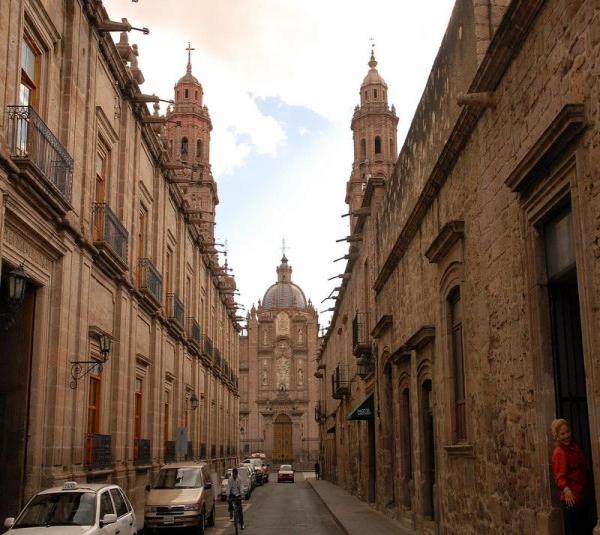 TEN YEARS LATER, I WAS BACK IN Mexico, riding the beat-up mountain bike I bought from a pawn shop, towing a trailer with my twin three-year-old boys seated inside, a cloth top sheltering them from the sun. I pedaled through the parklike atmosphere of the colonial quarter in Morelia, the cool springlike air buffeting my loose clothing under the intense tropical rays. I spent a lot of time caring for our children. I was pleased with myself for having arranged with my employer, Ithaca College, to work part-time, remotely, from Morelia. When I could have been doing nothing. When I could have been writing.
TEN YEARS LATER, I WAS BACK IN Mexico, riding the beat-up mountain bike I bought from a pawn shop, towing a trailer with my twin three-year-old boys seated inside, a cloth top sheltering them from the sun. I pedaled through the parklike atmosphere of the colonial quarter in Morelia, the cool springlike air buffeting my loose clothing under the intense tropical rays. I spent a lot of time caring for our children. I was pleased with myself for having arranged with my employer, Ithaca College, to work part-time, remotely, from Morelia. When I could have been doing nothing. When I could have been writing.
I was as active parent. I enjoyed prolonged comfort, even well-being, before a flood of formerly unconscious ghosts rose and haunted me.
I strolled with my family on the Calzada de Fray Antonio de San Miguel, in Morelia, near the aqueduct, on the Day of the Dead. My boys were scarcely able to contain their excitement. We walked for what seemed like hours, watching the ceremonies and studying the altars, the marigold petals, the sugar-candy skulls with plastic glittering eyes, the candles, the incense, and towering crosses covered in flowers.
In Mexico, there was a way in which I was approaching something I lost about my father, some broken part of myself, part of the wound I was excavating—or not excavating. I wandered around with an anticipating hunger, believing I would receive healing from the people around me.
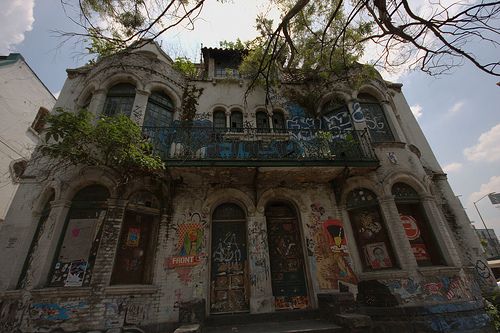
IN MEXICO CITY, THEY LEAVE DERELICT old buildings standing. History is not everywhere pushed to the margins by innovation and progress. They even keep old cars running. Twenty-year-old Chrysler New Yorkers and patched-together Volkswagen Golfs hum along, a striking difference from the North, where winter, salt, and rust—and desire for the new—claim many of their brethren. Everywhere, on the television, on the radio, in books, people speak of a history where Mexicans aren't a curiosity on the margins, but are the main characters. You often hear the phrase, "The United States usurped two-thirds of the Mexican national territory." Pre-Columbian ruins echo an earlier civilization. Half of the scholars of the country, including those not of indigenous descent, spend their time digging up ancient Mexico, digging their fathers out of their graves. Even in this country that had been abandoned by a father who could not remember, unearthing and excavating form part of the scenery. Driving around the country, I saw archaeologists everywhere, digging. You could not throw a rock without hitting one of their tents.
I began to walk in a numinous space where there was an expectation that I would write and remember. A Mexican friend, Adrian, said he expected it of me, and I began to expect it of myself. I lived in Mexico City's San Jose de Insurgentes neighborhood, a few blocks down from the Park of the Poets. Water poured from a fountain of a pen over an open book. Mexico is not a place to suppress problematic emotions. It provokes them to rise to the surface. People celebrate a holiday dedicated to commemorating the dead. Pre-Columbian ruins and archaeological parks evoke layers of human history. Modern speed and tumult compete with ancient quiet.
But I didn't go to Mexico and thereupon discover my true self. I always had one foot in Mexico, one foot back in upstate New York. I was not quite a Mexican, not quite a foreigner.
Once, when my mother was visiting, we drove out to Teotihuacán, normally a peaceful, contemplative place of the pyramids of the sun and moon. I unwittingly had taken her there on the spring equinox. As we approached the main causeway between the pyramids, we rose above a small embankment, and a swarm of shouting people expanded before us, as if we had entered a soccer stadium at full capacity. People sat in echelons on the steps of the pyramids and inched along the expansive walkways rubbing shoulder to shoulder. We had stumbled upon a great communal festival.
"Your father would have hated a crowd like this," my mother said. "But I keep seeing his ghost."
"I sense him, too."
AN ENTRY IN MY JOURNAL FOR THE novel began to take the shape of a short story. A young American couple in their twenties, along with the woman's mother and stepfather, are traveling by car in Mexico. When their car breaks down, they become stranded by the side of the road.
In real life when our car broke down, one rear strut jutting into the passenger compartment, we clattered to a nearby repair shop. The Mexican mechanics had us on our way again in twenty minutes.
In the short story, for a moment, our car was being driven by a beast—hairy, black, horns, slavering teeth. In real life, no beasts, but my friend Adrian: driving a little too fast along the smooth road, the car rocking, the suspension bucking and groaning around the curves. The stars in the night sky shone down as the four-lane highway twisted through the mountains to Mexico City.
On another trip, in real life, Jay drove the car. We were traveling home from Villahermosa. With a loud bang, we hit a huge pothole.
"Jay!" Jennifer's mother shouted. "Slow down!"
"It's not my fault. I couldn't avoid that pit."
"You're going too fast."
"The point of driving is to get from one place to another."
I captured these everyday snatches of dialogue in my notebook, much as an archaeologist pitches dirt laden with potsherds into a screen. But I still wasn't sure where I was going as a writer. At that moment, I was only glad that the car hadn't broken down again, that we would not be thrust into another strange Mexican situation, that our little vehicle, a microcosm of upstate New York, would continue on its way uninterrupted through the scenery.
I ASKED JENNIFER TO READ THE personal essay about writer’s block and Mexico that I was working on.
“It—doesn’t—work,” she said, spacing the words. “It’s episodic, but the episodes don’t relate to each other. So it’s not even episodic.”
Jennifer’s advice mattered to me. I wasn’t even close to finishing. I went back to revising.
I HAD ONCE IMAGINED MEXICO AS AN abandoned son, left behind by a father who could not remember him. It was a place of obstacles, pain, and forgetting. But I could not move forward with such a meaningless view of a country that had profoundly changed me.
When I think of the story I wanted to write, of a man suspended for hours in writer’s block in Mexico, I must now make a few considerations. Mexico is a place of interior action. Mexico, steeped in the Western tradition, is a place rich in metaphors of heroic and romantic struggle meeting with collapse, ultimately making way for internal, religious insight. Material collapse yields awareness about the limitations of humanity, of life and time slipping towards death.
I did not go to Mexico and thereupon discover my true self. If anything, I found my true self—and began to write coherently—back in upstate New York, in 2009, when my father was near death. I accessed Mexico through powers of memory and imagination. I overcame the writer’s block only when I called upon memories and images of Mexico, a place I once visited, as someone almost Mexican.
In 2013, after I had returned “home,” I finished a draft of the nonfiction book about my father, his illness, and my search to understand his life. I shared it with Jennifer. She sat on the sofa, nearing the end of the manuscript, her head turned toward the page in concentration, her hair falling over her shoulders. She looked up at me with those eyes that search my soul.
“You did it,” she said.
WHEN MY FATHER BEGAN HIS FADE into Alzheimer’s, I was left behind, abandoned in a world without meaning, without a story of my father. When I traveled in Mexico, I roamed the country of the people he had rejected. I believed my Mexican friend Adrian did not carry this burden, as did I, a Mexican American who had a sense of Mexico as “left behind.” I dispensed with my prejudices. Mexico was a vast country with its own peculiar set circumstances, advantages, and hardships. I let my guard down and no longer tried to block my emotions. I could imagine myself writing about this place. Traveling there helped me understand myself as a writer and a person. I was determined to improve my Spanish and learn as much as I could about Mexican culture. Returning to Mexico helped me with my fears of oblivion and meaninglessness. Thanks to my time there, I learned I could have closure on my own terms, as long as I was willing to work hard at seeking meaningful answers. I wrote to heal, to deal with the pain of being a survivor when my father was dying, and to remember him.
I woke this Saturday at seven, after a restless night. I had gotten up at midnight and spent two-and-a-half hours through the madrugada writing. As I neared finishing the project, I thought often about Mexico. Was my getting close to finishing the project a metaphor for burying my father? I wasn’t letting go of grief, but I was living through it. I wasn’t the one who died. I was the one who had come after, a now somewhat older man with a story.
Christopher Gonzales grew up in Middle Grove, outside of Saratoga Springs, New York. He is now raising a family in the state's Finger Lakes region. His non-fiction piece "Return of the Lost Son" is featured in issue 301.3 of our print edition.
Recommended
Schizophrenic Sedona
Recense (realized)
Notes on Hands


